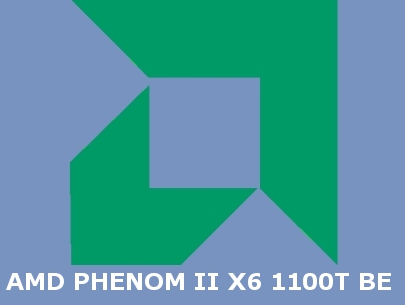AMD Phenom II X6 1100T BE Review
Conclusion
Alas the barrage of benchmarks have come to an end and its time to conclude.
So what do we think of AMD’s refreshed hex core? Unsurpringly it left us with the same positive impressions that the preceding 1090T gave us, but with a mild performance boost to sweeten the deal.
It may seem as though my comments are somewhat bland, but the fact remains that the 1100T was both necessary and expected. Given the recent consolidation of the Core i7 lineup, which ousted the 2.80GHz i7 930 in lieu of the price dropped i7 950 it was about time AMD responded accordingly.
Our previous 1090T review showed the processor successfully fighting against the outgoing Core i7 930; following the 950’s price drop the 1090T is inevitably at a disadvantage. Thankfully this is where the 1100T fights back. Our benchmarks show both CPUs winning and losing against each other, although game performance was largely equivalent. In theory, it would seem as though AMD’s Phenom II X6 holds its own reasonably well against the Core i7 Quads.
There are slight problems however. If you’re an overclocker, you will find that (at least on air) you will be nearing your limits just north of the 4.0GHz mark. While it has been shown that an overclocked Phenom II X6 is no slouch, there is no denying that a Core i7 at the same frequency would be faster in many applications. Moreover, today’s Core i7’s can often push further than 4.20GHz on conventional air cooling.
The next problem relates to those who are thinking of upgrading to the Socket AM3 platform; this means a new CPU, Motherboard and perhaps RAM as well. You should all be taking platform longevity into account. As it has been already confirmed that Socket AM3 boards will not support upcoming AM3+ “Bulldozer” architecture, there is no opportunity to upgrade to a faster processor without a motherboard swap.
On the other hand, the next month will see the release of Intel’s new LGA1155 Sandy Bridge architecture. Our reports have shown that the upcoming Core i5 2500k 3.30GHz and Core i7 2600k 3.40GHz processors will be priced ~£20 less & more than the 1100T respectively. Given that these processors boast new architectural tweaks and have been spotted overclocking as high as 5.0GHz on air, one really has to wonder if now is the time to consider a Socket AM3 system.
So to summarise, what is the 1100T Black Edition to us? In a nutshell it is a slightly faster 1090T BE for the price that the 1090T used to retail at. For most of the part it does not overclock significantly better either. Our view is that the whole purpose of opting for AMD’s Socket AM3 is for sheer “Value for Money”. With this in mind you may as well save your £20 and purchase the 1090T BE; so long as the 1090T BE exists, it is the more sensible processor to buy.
If however you are bent upon upgrading your system on or before the new year and you wish to sample the technological of delights of AMD, the 1100T Black Edition is without doubt the most capable weapon of choice.
The Good
– A reasonable i7 950 competitor
– Novice friendly overclocking
– Cool operation at stock speeds
The Mediocre
– Socket AM3 platform is at the end of the road
– Sandy Bridge Processors round the corner – wait?
– No better than 1090T BE for overclockers
The Bad
– NoneÂ
Thanks to AMD for the 1100T on test today, you can discuss your thoughts in the forums.




